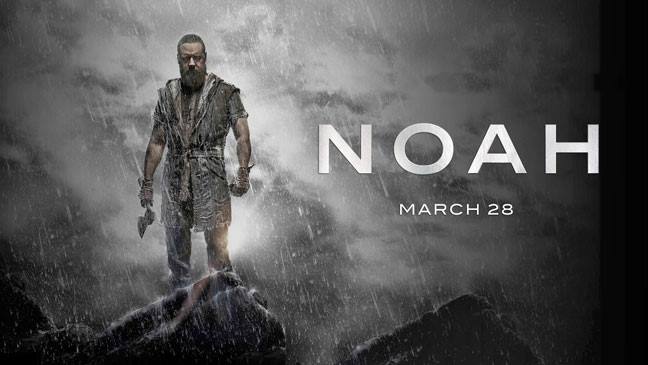Everyone knows the story of Noah and the great flood of The
Bible, or at least they think they do. Stories
like this one and many others that have permeated the social sphere are usually
not remembered, recited or quoted with accuracy or even with any of the
relevant context to the scriptures that surrounds them. Instead, these tales have
become a kind of cultural meme, and in the case of “Noah” over time the myth has been
whittled down to the iconography of animals, rainbows and a big wooden boat.
New
York filmmaker Darren Aronofsky, most well-known for his bleakly-pitched,
visceral indie work like “Requiem for a Dream” and “Black Swan”, cares nothing
about the memetic simplicity or even the moral dichotomies within the Noah
story of the original biblical text.
With his recent adaptation—working within a much bigger budget than he’s
usually afforded—he transgresses the familiar narrative in search for the
darker implications of the legend.
In this
alternative universe version of “Noah” , Russell Crowe plays our hero as he is
shown by the creator visions of a watery apocalypse that will destroy every
living person in the world. His grandfather Methuselah (Anthony Hopkins)
informs him that he has been called to save his family and the animalia of the
planet by building a large ark that will float along the earth’s surface during
the imminent flood. (Yeah yeah yeah—we know all that.) However, this time
around, what Noah isn’t telling his family is that perhaps the creator never
intended for the human race to survive past their death once they have saved
the other species. This becomes even
more complicated when Noah’s adopted daughter Ila (Emma Watson) is struggling
to bare children with his eldest son Shem (Douglas Booth), while at the same time his younger
son Ham (Logan Lerman) is begging for a wife to validate his budding
manhood.
Much
has been written about the fundamentalist reaction against Aronofsky’s
additions to the source material, and it’s obvious within the first ten minutes
that accuracy is not his aim. Much of the movie’s second half deals with the
existential angst that these characters have to endure in the face of their
seemingly elusive deity. Noah is forced to ponder if he was chosen because he’s
the best of mankind or simply the best man for the job. The psychological
weight this brings down on him and his family when they hear the screams outside
of the arch as the flood rises around them exemplifies the universal truth of
moral and spiritual uncertainty that this adaptation is interested in. The disgruntled faithful should know that, as
a story, the slanting of the text to better examine these characters and to give
these actors more pathos to deal with is not where the movie fails…but this does
lead me to my other point: rock monsters.
Maybe
in a grand statement of defiance, or perhaps in a broad brushstroke of creative
freedom, Aronofsky includes many Tolkien fantasy elements that unfortunately overpower
the first half of this otherwise dark film with misjudged silliness. But besides
scene-ruining rock monsters, Hopkins’ wizard-like Methuselah seems to serve more
as a writing device than as a character, telling us what we already know or could
gather from the plot, handing out magic-grow tree-seeds, and going on and on about
berries. Luckily the power and paranoia of the second
half just barely saves the film from the Dungeons and Dragons nonsense of the
first half.
I see
no reason why details about the rather short biblical verses shouldn’t be
altered for the sake of exploring characters and situations in a more complex
or subversive way, even if the film’s pot boils over with too many discordant
ideas from time to time. “Noah” is, without a doubt, an audacious and deeply
melancholy cinematic experience, but it may alienate fans of the book.
Originally published in the Idaho State Journal/March-2014

No comments:
Post a Comment